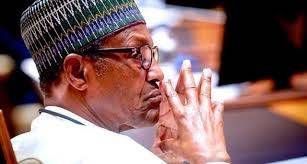President Muhamamdu Buhari has revealed why the country is yet to remove fuel subsidy.
He spoke in an interview with Bloomberg.
According to Buhari, the effects of removing fuel subsidies would have been too harsh on Nigerians.
The President also said they were working on boosting local capacity in order to stem the inflationary pressures.
Buhari claimed that most western countries are implementing fuel subsidies and added that “what is good for the goose is good for the gander”.
According to him, “My government set in motion plans to remove the subsidy late last year. After further consultation with stakeholders, and as events unfolded this year, such a move became increasingly untenable.
“Boosting internal production for refined products shall also help. Capacity is due to step up markedly later this year and next, as private players and modular refineries come on board.”
Buhari also explained that the exchange rate is very much “susceptible to external shocks that can suddenly and severely affect Nigerians”, but added that “as we step up domestic production – both in fuel and food – the inflationary threat shall diminish, and we can move toward unification.”
There is currently fuel scarcity in Lagos and other parts of the country.
Consumers are spending as high as N300/litre to buy the product in the black market.
President Muhamamdu Buhari has revealed why the country is yet to remove fuel subsidy.
He spoke in an interview with Bloomberg.
According to Buhari, the effects of removing fuel subsidies would have been too harsh on Nigerians.
The President also said they were working on boosting local capacity in order to stem the inflationary pressures.
Buhari claimed that most western countries are implementing fuel subsidies and added that “what is good for the goose is good for the gander”.
According to him, “My government set in motion plans to remove the subsidy late last year. After further consultation with stakeholders, and as events unfolded this year, such a move became increasingly untenable.
“Boosting internal production for refined products shall also help. Capacity is due to step up markedly later this year and next, as private players and modular refineries come on board.”
Buhari also explained that the exchange rate is very much “susceptible to external shocks that can suddenly and severely affect Nigerians”, but added that “as we step up domestic production – both in fuel and food – the inflationary threat shall diminish, and we can move toward unification.”
There is currently fuel scarcity in Lagos and other parts of the country.
Consumers are spending as high as N300/litre to buy the product in the black market.



No comments yet
Be the first to share your thoughts!